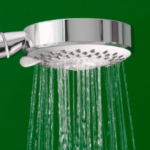Question
How can you tell if balanitis is fungal or bacterial?
Answer
Balanitis is inflammation of the glans penis; the bit that people refer to as the head of the penis. Posthitis is inflammation of the foreskin. Often, balanitis and posthitis occur together. When this happens, it’s called balanoposthitis.
Inflammation is the result of the body’s response to infection (by microorganisms like bacteria, viruses and fungi) or injury. The signs of inflammation are redness, swelling, heat, pain and impaired function.
So, when you have balanitis, your glans can be red, swollen, warm to touch, painful and can cause foreskin problems like phimosis or paraphimosis, and even result in infections in the blood in people with weak immune systems.

Like other types of inflammation, balanitis can be caused by bacteria, viruses or fungi. You need to see a doctor to work out which type of microorganism is causing the problem. The presence or absence of pus, ulcers, or inflammation of the urethra (the ‘tube’ that carries urine and semen through the penis), can help to narrow it down.
In most cases, balanitis and balanoposthitis are caused by a species of yeast that normally lives on the skin without causing problems (Candida albicans), so treatment usually involves two or three weeks of using an antifungal cream.
Regardless of which type of microorganism is causing your balanitis or balanoposthitis, the best way to prevent the problem is with good hygiene. If balanitis or balanoposthitis keeps coming back, your doctor might suggest you be circumcised because these health problems are rare in males who have had this done.
People also ask
Is balanitis contagious, and how can it spread?
Balanitis itself is not contagious, but some of the underlying causes of balanitis can be transmitted to others.
What are the risk factors for developing balanitis?
Some risk factors for developing balanitis are poor hygiene, weakened immune system, poorly managed diabetes and taking antibiotics.
How can you prevent recurring balanitis infections?
The best way to prevent balanitis is with good hygiene, but if you keep experiencing balanitis again and again see a doctor as there could be an underlying problem.















